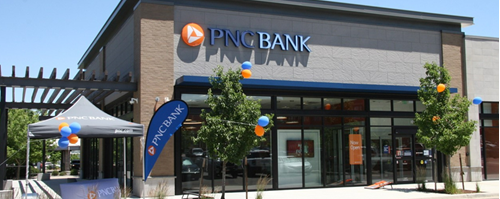|
|
|
|
|
|
|
|
|
|
Musk Backlash Hits Tesla Profit; Tariffs Could Cost Meta $7 Billion in Ad Revenue From China; Top ‘60 Minutes’ Producer Quits, Citing Editorial Pressure
|
|
|
|
|
|
|
|
Good morning. Today, the Tesla brand suffers from its close association with Elon Musk; President Trump’s tariffs make Meta’s Chinese advertisers a liability; and the executive producer of “60 Minutes” says he lost his editorial independence.
|
|
|
|

|
|
Tesla’s first-quarter global vehicle deliveries declined 13%. PHOTO: CFOTO/ZUMA PRESS
|
|
|
|
|
|
Tesla’s net income slid 71% in the first quarter, as the company struggled with competition overseas and a reputational hit from CEO Elon Musk’s polarizing role in the Trump administration, Sean McLain reports.
Musk said he will devote significantly less time to his federal cost-cutting work at DOGE starting next month, but struck a defiant tone against critics. “I believe the right thing to do is to fight the waste and fraud and try to get the country back on the right track,” Musk said on a call with analysts.
Musk sighed deeply on the call before addressing Trump’s trade war, saying he has advocated for lower tariffs. “I just want to emphasize that the tariff decision is entirely up to the president of the United States,” Musk said.
The trade fight and “changing political sentiment” could weigh on demand this year, Tesla said, leading it to potentially revisit its sales forecast.
|
|
|
|
|
Content from our sponsor: Deloitte
|

|
|
Say ‘Yes’ More Often: Advice from PNC Bank CMO Jenn Garbach
|
|
PNC CMO Jenn Garbach discusses the bank’s brand relaunch and her effort to transform the marketing organization into an engine of business growth. Read More
|
|
|
|
|
|
|
|
|
|
|

|
|
Meta CEO Mark Zuckerberg arrives at the Breakthrough Prize ceremony on April 5 in Los Angeles. PHOTO: JORDAN STRAUSS/AP
|
|
|
|
|
|
Meta could lose $7 billion in ad revenue this year because of President Trump’s tariffs, according to a new estimate from analysts at research firm MoffettNathanson, Meghan Bobrowsky writes.
Meta doesn’t operate its services in China, but advertisers from the country, namely Temu and Shein, buy ads on its platforms to reach U.S. shoppers.
Two changes—145% tariffs on imports from the country and the closing of the de minimis loophole—now make it virtually impossible for Chinese companies to sell their goods in the U.S.
Meta has become increasingly reliant on China for sales growth since 2022 and last year attributed 11% of its overall ad sales to Chinese advertisers. Its overall losses could swell to $23 billion if the country enters a prolonged economic downturn, the analysts said.
Related: The European Union fined Apple and Meta hundreds of millions of dollars and ordered the companies to comply with the bloc’s tech rules, a move that risks ratcheting up tensions with the Trump administration as EU officials pursue trade talks. [WSJ]
|
|
|
|
|
|
|
|
|
|

|
|
Top ‘60 Minutes’ producer Bill Owens told staff he had become a problem for CBS. PHOTO: PIARAS Ó MIDHEACH/SPORTSFILE/COLLISION/GETTY IMAGES
|
|
|
|
|
|
The top executive at CBS News program “60 Minutes” resigned Tuesday, saying he had lost editorial independence, a high-profile departure from a company in the throes of a legal battle with President Trump, Joe Flint and Jessica Toonkel report.
Bill Owens, the show’s executive producer, told staff in a memo that it had become clear he would “not be able to run the show as I have always run it.”
Owens has faced criticism from Shari Redstone, whose family company controls CBS parent Paramount Global, for his editorial decisions—including coverage choices regarding the Israel-Hamas war—and from Trump over an October interview with Kamala Harris.
Trump sued CBS News over how “60 Minutes” edited the Harris interview.
Paramount meanwhile is pursuing a merger with Skydance Media and needs approval from the Federal Communications Commission to cross the finish line. The FCC has opened an investigation into possible news distortion by CBS News in relation to its editing of the Harris interview.
|
|
|
|
|
|
|
|
|
|

|
|
Sarah Palin leaves Manhattan federal court Monday after testifying. PHOTO: YUKI IWAMURA/AP
|
|
|
|
|
|
A federal jury rejected former Alaska Gov. Sarah Palin’s claims that the New York Times defamed her in an editorial about gun violence. [WSJ]
Google won’t prompt Chrome users to opt in or out of cookies after all, abandoning the last remnant of a multi-year effort that once promised to eliminate third-party cookies from the browser altogether. [Ad Age]
The Washington Post became the latest publisher to strike a deal letting ChatGPT summarize its articles in its responses. [Verge]
Apple removed the “Available Now” claim from its webpage about Apple Intelligence after an industry watchdog said a footnote with caveats was not “sufficiently clear.” [MacRumors]
A new hotel in Denver is promoting itself as “carbon positive,” meaning it absorbs more carbon than it emits. [NYT]
American Eagle started an affiliate sales program offering influencers discounts and early access to new collections in addition to commissions. [Modern Retail]
Hot Topic, Old Navy and Amazon sell a surprising amount of “Bluey” fashion for adults. [THR]
|
|
|
|
|
|
|
|
|
|
|
|
|
|
|
|